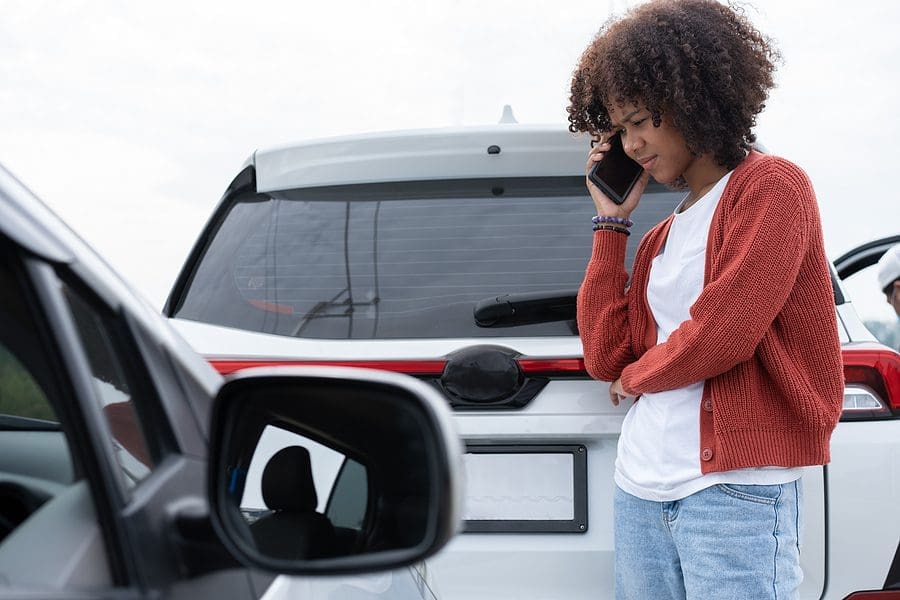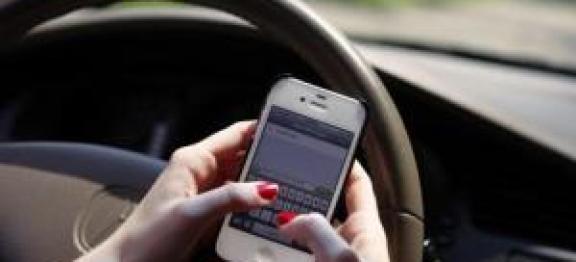JONES LAW GROUPYour Lawyers for Life! Personal Injury Law Firm in St. Petersburg

According to the Florida Department of Highway Safety and Motor Vehicles, approximately 40% of accidents in Florida result in an injury. Living in Florida, you may have heard of the term ‘no-fault’ when it comes to these car accidents. What does it mean to be a ‘no-fault’ state? What is a No-Fault State? The ‘no-fault’ […]
Call our personal injury law office directly at (727) 512-9847
At Jones Law Group in St. Petersburg, FL, we would like to hear from you. Contact us for a free personal injury case consultation.
Call our personal injury law office at (727) 512-9847
Get educated on the Florida's personal injury laws and more.
According to the Florida Department of Highway Safety and Motor Vehicles, approximately 40% of accidents in Florida result in an injury. Living in Florida, you may have heard of the term ‘no-fault’ when it comes to these car accidents. What does it mean to be a ‘no-fault’ state?
The ‘no-fault’ law provides that in the event of a car accident, individuals will file a claim with their insurance instead of the ‘at-fault’ driver’s insurance. Essentially, regardless of who was at fault, the parties will turn to their own personal injury protection insurance to compensate them for their injuries.
Personal Injury Protection (PIP) insurance varies depending on the state in which you are covered. In Florida, PIP Insurance covers medical costs, lost wages, and death benefits. In Florida, PIP Insurance will cover 60% of your lost wages, up to $10,000, following your claim. This can also go to the costs of paying for caretaker services. Additionally, PIP Insurance will pay up to $5,000 in benefits if the policyholder passed due to the accident.
It is important to note that in Florida, PIP insurance only covers 80% of your medical costs. This means that if your injuries total $10,000, your insurance will only cover $8,000 of that. However, if your injury is not considered an emergency, your insurance will only distribute $2,500 in benefits. It may prove beneficial for one also to have comprehensive medical insurance.
To protect your vehicle from any damages, you need to have collision coverage, which covers accidents involving stationary objects or other vehicles. Additionally, you may wish to have comprehensive coverage which protects your vehicle from damages caused in a non-collision event.
For a passenger to be covered by your PIP Insurance, you would have to add that coverage when selecting your insurance plan. In this case, an injured passenger (who is most likely family and does not have their own insurance) would be able to claim damages from your insurance.
However, if the passenger has their own PIP Insurance, they will request damages from their own insurance. This also includes any adult drivers who may have borrowed your insured vehicle. Drivers who have borrowed your car or passengers who are not named on your policy are not covered under your Personal Injury Protection Insurance.
As a survivor of a car accident, one may be left to cope with both physical and mental pain. One may even suffer from Post-Traumatic Stress Disorder, which can permanently change one’s abilities and quality of life. Unfortunately, PIP Insurance does not cover noneconomic damages, such as pain and suffering. This is why it is in one’s best interest to speak to an attorney on how to receive compensation for those damages.
Yes, Florida is one of the 12 no-fault states in the United States. Florida became a no-fault state in the 1970s due to irritation with the processes of receiving compensation for injuries after car accidents.
This law was thought to make it easier for those suffering injuries to seek medical treatment. Every Florida resident who owns a vehicle is required to carry PIP insurance. Nonetheless, this law does not mean that an injured party cannot sue.
In Florida, parties can sue when their injuries meet the law’s “injury threshold.” This threshold refers to any injury which significantly alters or results in the permanent loss of an important bodily function. This law also includes permanent injuries within a reasonable degree of medical probability, significant scarring or disfigurement, as well as death. 627.707(2), Florida Statutes
Recovering from a car accident is hard enough; let an experienced Jones Law Group attorney help you get the compensation you deserve. We will work passionately on your behalf to help you obtain full and fair compensation.
Our firm has a team of experts who will your questions and provide the aggressive representation it will take to ensure you get every dollar you are entitled to. Schedule a free case review by calling (727) 571-1333 or using our online contact form.

Drowsy truck drivers pose a threat to other motorists, pedestrians, and bicyclists because they are more likely to exhibit poor judgment, maneuver recklessly, or fall asleep behind the wheel. Driver fatigue can impair driving abilities in ways similar to alcohol intoxication. Fatigue behind the wheel is a significant contributor to truck accidents in the United […]

Car accidents are common on our roads, and they can happen to anyone, anytime, anywhere. Witnessing a car accident can be a traumatic experience, and it’s essential to know what steps to take to help those involved. Here’s some information on the steps to take if you witness a car accident. Hopefully, you’ll never be […]

A lot of Americans are committing to improved health, and Floridians are no exception. Part of this commitment means walking whenever possible, rather than taking a car. That’s a lot easier to do in Florida, since our weather is so fantastic for the majority of the year. Unfortunately, that also means more Floridians are at […]

Blunt force trauma in a car accident can have long-term health consequences, so it’s important to identify and treat these injuries quickly. Summary Experiencing a motor vehicle accident can be a life-altering event, often resulting in various injuries, including blunt force trauma. Recognizing the symptoms of this type of injury is crucial for ensuring timely […]
When Should I Hire an Attorney After an Accident? It is perfectly within your rights not to hire a lawyer after a car accident. In many cases, I would even argue that you do not need one. However, there are situations in which the hiring of an attorney is a wise decision. It is important […]

It is illegal to text and drive in Florida. The Pinellas County Sheriff or the St. Petersburg Police are perfectly willing to give tickets, but thus it seems that more people have caused an accident by texting than ticketed prior to an accident. In my opinion, the law is deficient because it allows for too […]
Speak with us before time runs out! In Florida, you have a limited window to file a personal injury case, so speak to an Attorney today.
Call our personal injury law office directly at (727) 512-9847
Jones Law Group is a dedicated personal injury lawyer in St. Petersburg, FL, serving the Tampa Bay area since 2006. Our experienced attorneys specialize in car accidents, slip and fall cases, employment law disputes, construction law issues, and overtime wage claims, fighting for maximum compensation on a contingency fee basis. Contact us for a free consultation to discuss your case.
Call our personal injury law office at (727) 512-9847
© Copyright 2006–2025 Jones Law Group Attorneys at Law. All rights reserved. Privacy Policy Terms of Use
Attorney Advertising.
The information on this website is for general information purposes only. Nothing on this site should be taken as legal advice for any individual case or situation. This information is not intended to create, and receipt or viewing does not constitute, an attorney-client relationship. Past results do not guarantee similar outcomes.
Are you injured or wronged and interested in a consultation? Fill out the form for a free consultation with us.